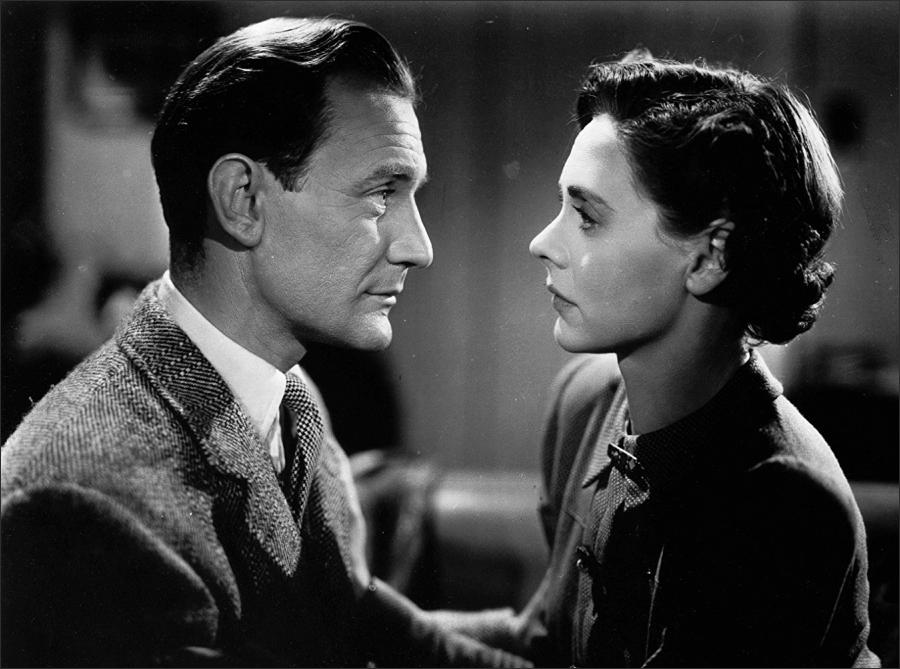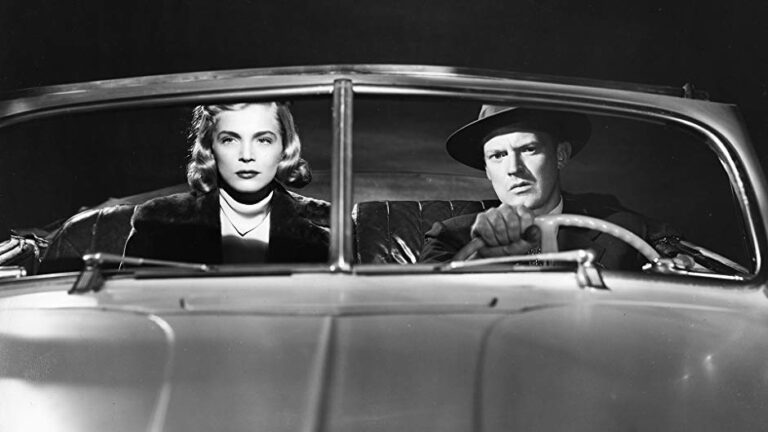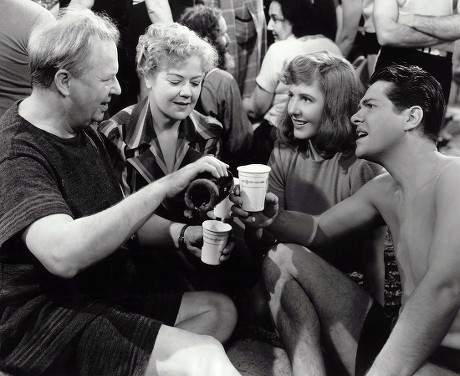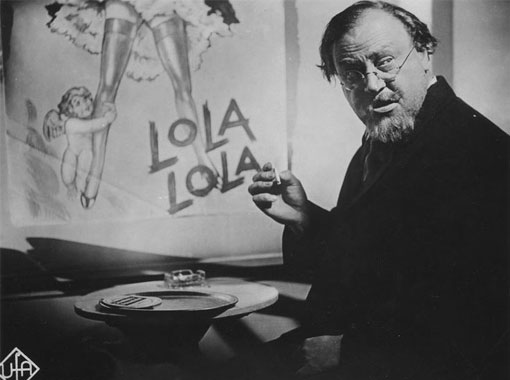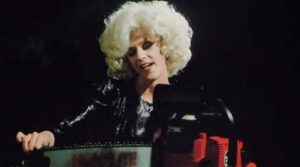– Dr. Alec Harvey: Forgive me?
– Laura Jesson: Forgive you for what?
– Dr. Alec Harvey: For everything. For meeting you, in the first place. For taking the piece of grit out of your eye. For loving you. For bringing you so much misery.
– Laura Jesson: I’ll forgive you if you’ll forgive me.
Impractical love and marital controversies in David Lean’s Brief Encounter
The philosophy of love is inexorably complex, we humans are complicated creatures, and love remains one of the most far-reaching emotions that humans experience in their ephemeral time on earth. From ancient to modern eras, from the undisputed classics of literature to the most memorable plays, poets, novelists, musicians and philosophers have been inspired by that intricate feeling called love. Yet no work has so mystified me in its visceral treatment of the conception of modern love as David Lean’s achingly beautiful 1945 masterpiece. In many respects, this searingly honest opus of cinema is the most provocative depiction of two bored strangers souls recovering the value of their existence through the impromptu love that is sparked between them as they are entwined in a life-changing fate. For that reason, the film is more than a tearful romantic drama. As a story of unconsummated love and the plight of social prejudice within the politics of marriage, the melancholy of the romantic tale transcends the conventional genre and transfers its social scrutiny into essayistic rather than dramatic territory. That is, I consider Brief Encounter’s philosophy of love powerfully disruptive and revolutionary as both a forthright critique of the hypocrisies of the matrimonial institution and a genuine moral examination of the middle class of the 1940s.
Laura Jesson (Celia Johnson), the delicate and prudent female protagonist of this story, is the average middle-class British woman, married with two children, living in a warm and commodious home. Her routines are fairly predictable: shopping, attending to the needs of her children and husband, having tea at the same time while waiting for the train home. On the other hand, Alec Harvey (Trevor Howard), the deferential and gentlemanly male protagonist of this story, is also middle class, a family physician and an idealist par excellence, with a wife and children. As opposed to Laura, Alec’s routine is never specific or itemized, the only predictable part of his busy schedule is that he always meets up furtively with Laura on Thursdays each week. The two met by happenstance at a train station, and since then the stars conspired in their favor so that they would meet serendipitously many times until they both ended up falling madly in love with each other. This love affair is ineluctable, from their innocent first meeting the narrative embraces love as an unavoidable event. Both have lives of their own, they are in their mid or early 40’s, Laura is married, and Alec is married; in any western social context this love between the two is simply impractical. Both Laura and Alec are well aware of this, yet both are driven by the instinct of their hunches and live the illusion of an adolescent romance, full of possibilities and with nothing to stop them. The film is based on a 1936 one-act play called Still Life, thus this adaptation is succinct and minimalist in its storytelling. Laura and Alec’s affair happens as quickly as it ends, but the reminiscences of that extramarital affair – which are narrated by a bemused Laura sitting on the couch at home pondering whether or not to tell her husband about her feelings – feel everlasting. The question the film asks you, which is the same question the protagonists ask themselves every minute, is the thesis that encompasses the philosophical and social rigor of the story: Should they have consummated their love and chosen to be happy?
The mere reflection of such a controversial situation is extremely distressing. Whatever decision Laura and Alec make, it will be judged by the conservative policies that marriage has instilled in Western society. Is this piece of cinema implying that the commitment – whether religious or civil – between two people goes against the nature of love? Hypothetically, I would venture to say yes. Suppose this, let’s imagine that Laura and Alec decide to stay together, and consequently shatter the integrity and structure of their families. However, I consider it a fallacy to believe that falling in love is something you decide and not something that just happens, therefore a decision of such meaningful characteristics should not be something unethical or selfish. It is an absurdity for humans to believe in an eternal fidelity while neglecting how unpredictable love can be, even more so when you take into account its subjectivity. There is a whole metaphysics in the values of matrimony that I believe are not considered, such as happiness. What good is the union of two people if in the end it becomes a martyrdom? Some will say that that is what divorce is for, yet the mere existence of divorce substantiates the absurdity of the matrimonial covenant. David Lean’s thoughtful and practical filmmaking seems to grasp in depth these nuances in the story, the vivid emotionalism evoked by the thrilling camera angles – the most austere but breathtakingly effective use of Dutch angles occurs in this film during its shattering, dizzying climax at the train station – capturing with exhaustive compassion the impossibility of love between two people, unable to act on their inner voices because of their principled fears, and ultimately succumbing to conformist wretchedness. Brief Encounter leaves you heartbroken because beyond the reciprocal human feelings with which we bond with the characters, the film embodies the chaos of love in its most mature and incorruptible state. Witnessing two people fall in love in the purest and simplest way, without sexual heterodoxy or carnal banalities, only love in the most platonic sense of the word is one of the richest experiences you can have watching a film; you think, feel and cry in unison with Laura and Alec’s romantic tribulations. The tart finale makes an urgent plea for a re-evaluation of our Western morality.
In conclusion, this grief-stricken tale of impossible love can be viewed from multiple interdisciplinary perspectives. Essentially, the narrative demands an almost social involvement from us as viewers, therefore it is imperative to view the polemical issues it addresses from different lenses. When we observe how Alec and Laura’s joy is torn apart by feelings of guilt, we intuitively realize that there is something fundamentally flawed about social institutions as guidelines for commanding our thoughts and views on life. This is a philosophical rather than institutional subject, and in that same domain it should remain in order to make love a universal interpretation, a language better said, that has no specific rules. That is why Brief Encounter is emotionally legible, the conversational system with which practically the whole film unfolds has a universal quality. And cinema capitalizes on this language to make it interchangeable with its own, to create something so expressly humane that it can touch even the coldest of hearts. Yes, the philosophy of love is intricate, but studying it from the poetic depth of Brief Encounter is always a good start to learn about its complex facets and who knows, maybe even fully apprehend them.
